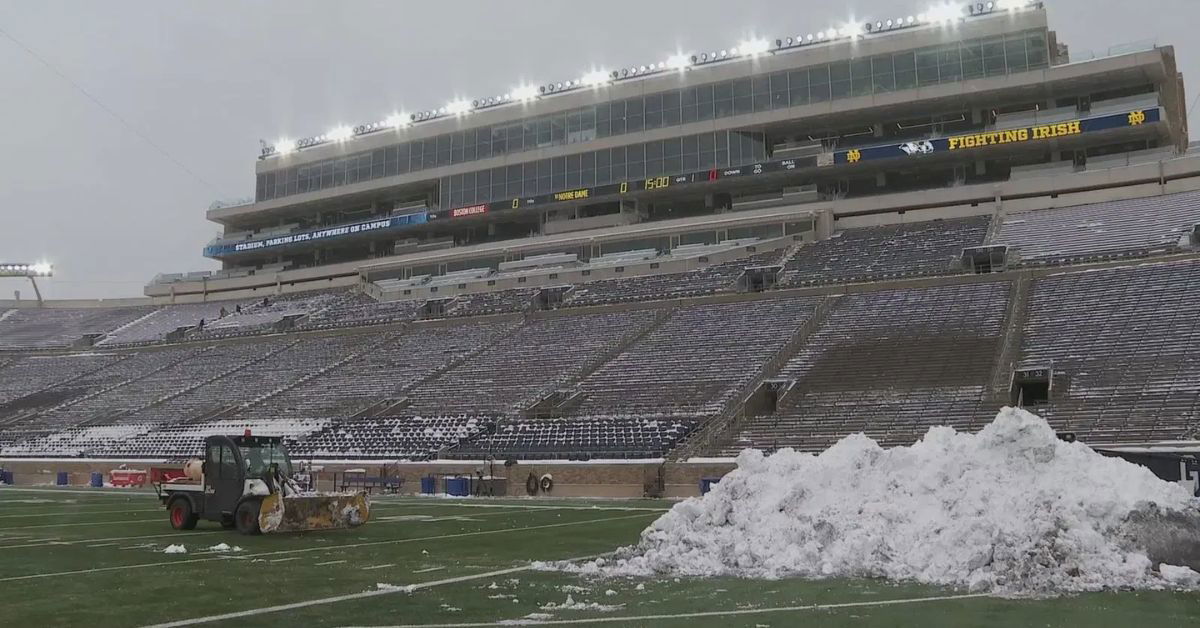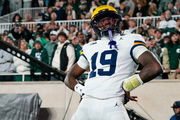

The news of Coley O’Brien’s passing landed softly and then stayed, the way certain losses do. He was 76, and the timing felt achingly poetic. Just days after, Notre Dame would open another season, this time in Miami. The program he once steadied with a calm hand and a fearless heart will set out again, without him. It’s easy to overlook a quiet hero, but anyone who knows the 1966 team knows there’s a banner in South Bend that hangs in part because O’Brien refused to blink.
Watch What’s Trending Now!
His path to Notre Dame read like a chapter that almost didn’t get written. A kid from McLean, Virginia, living with diabetes and lacking your good old quarterback frame. He crossed paths with Ara Parseghian at a D.C. banquet and earned himself a late scholarship on little more than character and conviction. He arrived to find an intense competition with Terry Hanratty, and when Hanratty won the job, O’Brien did what the best teammates do: he stayed ready. Tough, sharp, uncomplaining, he learned the playbook like a second language and waited for the one moment that would ask everything of him.
“We are deeply saddened by the passing of Coley O’Brien. We send our condolences to his family and friends.” The program’s brevity in his tribute said enough because his story says the rest. On that gray November day against Michigan State, in the Game of the Century, Bubba Smith knocked Hanratty out, and O’Brien stepped in. Just when Michigan State was leading 10-0, the cold and unfazed O’Brien found Bob Gladieux for a 34-yard strike that changed the mood of the stadium and the season. The game ended in a 10-10 tie, which kept Notre Dame’s title hopes alive. A week later, in his only college start, he carved USC for 250 yards and three touchdowns in a 51-0 rout that clinched a national championship.
ADVERTISEMENT
View this post on Instagram
What happened after might be the part he treasured most. O’Brien moved to halfback when the team needed it, proof that his pride bent toward the huddle more than toward a title on the depth chart. Off the field, his relationship with Parseghian became a compass. Ara told him plainly and lovingly to pursue law school after Notre Dame—advice O’Brien took to heart. O’Brien went on to build a distinguished legal career and represented NASA with the same steadiness he’d once brought to the pocket. It’s hard not to see the through line: humility, clarity, and a devotion to doing the next right thing.
Coley O’Brien will be remembered as the embodiment of “next man in,” long before that became a slogan. He was poised under pressure, brave without bravado, and generous with his talent, willing to shift positions, share credit, and carry responsibility without demanding attention. In the end, the measure of his legacy is simple and abiding: a championship saved, a life well-guided, and a standard set for what it means to be part of something larger than oneself. Most of us spend our lives chasing the spotlight, but he gave the light away. And that’s how people become unforgettable.
ADVERTISEMENT
The Irish faithful on Coley O’Brien
Coley O’Brien’s passing stirred memories of a player defined by readiness and composure, the backup who steadied Notre Dame in the 1966 “Game of the Century” and then authored a title‑clinching masterpiece a week later. That context is why fans keep returning to the moments that mattered most, stepping in after Terry Hanratty’s injury, hitting Bob Gladieux to turn the tide at Michigan State, and then starting against USC and delivering a 51‑0 statement. As one fan said, “Strong memory of Coley in one of the games of the last century. 10-10 battle with Michigan State,” because that tie preserved the path to a championship and showcased O’Brien’s poise when the No. 1 team needed it most.
ADVERTISEMENT
The tributes also circle back to character. A fan said, “❤️RIP Coley Your courage is what we remember and admire,” and another added, “Rest easy Mr. O’Brien,” emphasizing how he competed and carried himself. That courage was evident in cold, specific ways: taking over on the road against a powerhouse defense, managing the moment without panic, and then, in his only collegiate start at quarterback, throwing for three touchdowns and 250‑plus yards to finish the job against USC. It’s the performance‑plus‑presence combination that explains why the word “courage” appears so naturally in these messages.
Family connections add depth to the remembrance. Cindy Parseghian, Ara’s granddaughter, said, “Grandpa Ara was always proud of you!” Of course, Ara would be proud. He knew O’Brien had something in him when he earned a late scholarship, won trust through preparation, and later even switched to halfback because the team needed it. Another fan added, “One of my late father’s favorite players #RIP,” a reminder that O’Brien’s legacy lives in households as much as in highlight reels. Across generations, the through line is consistent: dependable under pressure, team‑first in role and attitude, and worthy of the pride expressed by the coach who believed in him and the fans who never forgot what he delivered.
Top Stories
LIV Golf Braces for Another Possible Exit in Wake of Brooks Koepka Departure

Sean Payton Announces Retirement Plans as Broncos HC Demands Improvement From Bo Nix & Co. Before Playoffs

Greg Biffle’s $4M Prized Possession Goes Up for Sale After Tragic Crash, Leaving NASCAR Fans Heartbroken

Biff Poggi All But Confirms Bryce Underwood’s Michigan Future After Announcing His Own Departure

‘Fighting for His Life’: ESPN Confirms Kirk Herbstreit’s Silent Struggles at College GameDay

Rory McIlroy Makes Feelings Clear on Bryson DeChambeau’s PGA Tour Return: ‘Have Lost…’

ADVERTISEMENT
ADVERTISEMENT
ADVERTISEMENT

